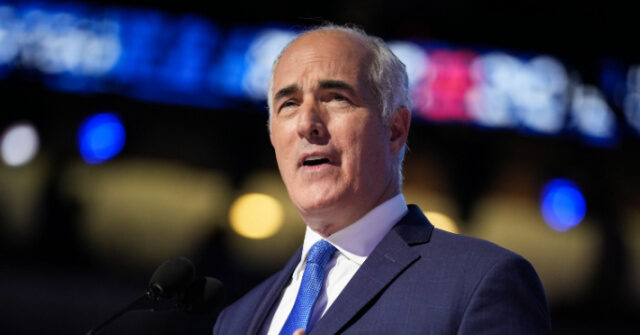
by Stefan Stanford, All News Pipeline:
In the wake of the Democratic wipeout November 5 and the tapping of Tom Homan as President Trump’s “border czar,” Democratic governors are busy trying to build a new “blue wall” to shield illegal aliens from promised immigration law enforcement. “Governors Safeguarding Democracy” is a new organization designed to stymie Trump initiatives in blue states. New Jersey governor Phil Murphy pledges to stand up “if there is an attack on the Garden State or any of its communities from Washington,” pledging “I will fight back with every fiber of my being.”
TRUTH LIVES on at https://sgtreport.tv/
What does Phil Murphy envision? Donald Trump in a rowboat, flag in hand, crossing the Delaware on Christmas Night to attack Trenton? Given the outfit now holding the state capital, this New Jerseyan thinks that wouldn’t be a bad idea.
Illinois Governor J.B. Pritzker (co-founder with Colorado’s Jared Polis of “Governors Safeguarding Democracy) promises to block federal interference in the Land of Lincoln. While I have no doubt a J.B. Pritzker body block would be formidable, I think we can circumvent him.
These Democrats are channeling their inner George Wallace, promising to resist federal encroachment on their “state’s rights.” Consider the paradox: Democrats finally found the Tenth Amendment.
Except news flash to J.B., Phil, Kathy, Gavin, Gretchen, Maureen, Jared, and Ned: immigration is a federal priority.
That was your argument when Republican governors in Texas and Arizona tried to fill the vacuum caused by Obama and Biden non-enforcement of the Immigration and Nationality Act. Now that President-Elect Trump is committed to seeing the INA is “well and faithfully executed” — as the Presidential Oath of Office requires — just step aside.
Now, I never believed the argument that federal immigration jurisdiction preempted state cooperation with federal authorities. It only preempts, in my view, undermining federal enforcement, certainly actively but even passively.
One way “sanctuary” states and cities have refused to enforce federal immigration law has been how they handle criminals. Verifying whether people who are arrested have a right to be here should be a no-brainer. When we look at how most Blue States are governed, “no-brainer” seems about an apt description.
“Sanctuary” states do not verify immigration status and do not honor “retainers,” i.e., requests by federal law enforcement to hold someone otherwise to be released, when federal immigration is interested in them. This should stop.
Liberals used to claim the immigration system is flawed because employers do not verify employment eligibility and, therefore, Republican corporate types were as much to blame for illegal immigration as Democrats. There’s something to that argument, which simply means we should enhance the penalties for failing to verify employment eligibility status and/or hiring in violation of ineligibility. (Of course, most leftists have moved beyond “employers aren’t vetting illegals” to “no matter what, our economy will tank without them regardless of eligibility”).
That also means we need to break down some of the federal siloes that result in Social Security and other agencies not robustly interacting to track down fake users of Social Security numbers or verifying mismatched numbers and names.
All that said, however, if we expect employers to verify the right of somebody to work here, it’s legitimate to expect law enforcement – any law enforcement – to verify whether somebody in custody has a right to be here.
It is simply ludicrous to contend “it’s not my job.” If you detain a man who’s wanted in the next state for rape, you don’t say, “well, he didn’t do it in Illinois, so, good luck, be well, you might want to avoid Indiana.” If you hold a man in California, run his name, and discover he’s wanted in Arizona for “breaking and entering,” you don’t say (well, it’s California, you might): “You’re free to go, just don’t book any flights to Tucson.” If you can be extradited for breaking and entering a house, why are you immune for breaking and entering America’s house?
How to solve the “Blue Wall?” I suggest combined regulations and law changes. Require states to run immigration status, notwithstanding any state rules. Try it as a regulation: the worse that can happen is dragging through the courts.
Obviously, the best thing is to make it federal law. While at it, let’s adopt the Frank Lautenberg approach, used to strongarm recalcitrant states into increasing their drinking age. Any state that fails to enforce federal immigration law, at least with regard to detainees (and possibly if requested in conjunction with raids on illegals) should forfeit, say, 25% of federal law enforcement assistance money. Why should America’s taxpayers be paying full aid to states that don’t provide full legal enforcement aid?
“This will spike crime,” you say. Well, yes, it might. And perhaps that is the unfortunate cost of forcing otherwise myopic blue cities and states — which are often leaders in crime statistics anyway — to reckon with the costs of selective law enforcement. Either locals will pay more for law enforcement or they will face the consequences – and wake up to the consequences of retrograde criminal justice policies which subsidies from more responsible states are buffering.
Read More @ AllNewsPipeline.com
Originally Posted at https://www.sgtreport.com





